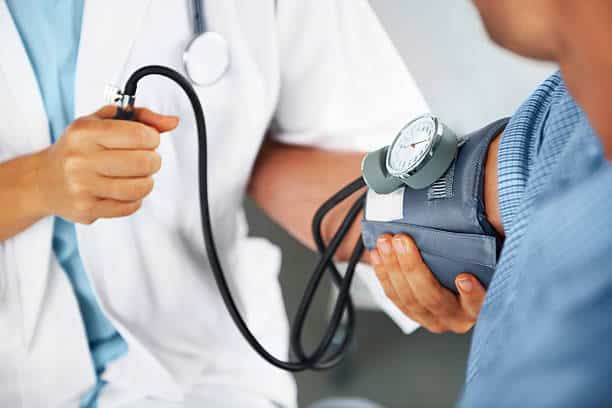High blood pressure, also known as hypertension, is a common condition that affects millions of people worldwide. It occurs when the force of blood against the walls of the arteries is too high, which can lead to serious health problems. In this article, we will discuss the causes, symptoms, and treatment options for high blood pressure.
Causes of High Blood Pressure
There are many factors that can contribute to the development of high blood pressure. Some of the most common causes include:
- Genetics: High blood pressure can run in families, and certain genetic factors can increase a person’s risk of developing the condition.
- Age: As people get older, their risk of developing high blood pressure increases.
- Obesity: Being overweight or obese can increase the risk of high blood pressure, as excess weight puts extra strain on the heart and blood vessels.
- Lack of physical activity: People who are inactive or have a sedentary lifestyle are more likely to develop high blood pressure.
- Stress: Chronic stress can cause an increase in blood pressure, and can make hypertension worse.
- Poor diet: Consuming too much salt, alcohol, and processed foods can increase the risk of high blood pressure.
- Certain medical conditions: Conditions such as diabetes, kidney disease, and sleep apnea can also contribute to the development of hypertension.
Symptoms of High Blood Pressure
High blood pressure often has no symptoms, which is why it is often referred to as the “silent killer.” However, some people may experience the following symptoms:
- Headaches
- Dizziness
- Nausea
- Blurred vision
- Chest pain
If you are experiencing any of these symptoms, it is important to see a doctor for a blood pressure check.
Treatment Options for High Blood Pressure
High blood pressure can be treated with lifestyle changes, medication, or a combination of both.
Lifestyle Changes
- Weight loss: Losing weight can help lower blood pressure, especially if you are overweight or obese.
- Exercise: Regular physical activity can help lower blood pressure and improve overall health.
- Diet: Eating a healthy diet that is low in salt, saturated fats, and processed foods can help lower blood pressure.
- Stress management: Practicing stress-management techniques such as meditation, yoga, or deep breathing can help lower blood pressure.
- Quit smoking: Smoking can damage the blood vessels and increase the risk of high blood pressure. Quitting smoking can improve overall health and lower blood pressure.
- Limit alcohol: Drinking too much alcohol can increase blood pressure, so it is recommended to limit alcohol consumption to no more than two drinks per day for men and one drink per day for women.
Medication
If lifestyle changes alone are not enough to lower blood pressure, medication may be prescribed. Common medications for hypertension include:
- Diuretics: These medications help the body get rid of excess salt and water, which can lower blood pressure.
- ACE inhibitors: These medications help relax blood vessels, which can lower blood pressure.
- Calcium channel blockers: These medications help relax blood vessels and lower blood pressure.
- Beta blockers: These medications slow down the heart rate and lower blood pressure.
- Angiotensin receptor blockers (ARBs): These medications also help relax blood vessels and lower blood pressure.
It is important to note that medication should always be prescribed and monitored by a healthcare professional.
In conclusion, high blood pressure is a serious condition that can lead to serious health problems. However, it can be treated and managed with lifestyle changes and medication. If you are experiencing symptoms of high blood pressure or are at risk of developing it, it is important to see a doctor for a blood pressure check and to discuss treatment options. Remember that lifestyle changes such as maintaining a healthy weight, exercising regularly, eating a healthy diet, managing stress, quitting smoking, and limiting alcohol consumption can help lower blood pressure. If lifestyle changes alone are not enough, medication may be prescribed to help lower blood pressure. It is important to work closely with a healthcare professional to manage hypertension and to regularly monitor blood pressure to ensure it stays within a healthy range. By taking control of hypertension, you can reduce the risk of serious health problems and improve your overall health and well-being.
